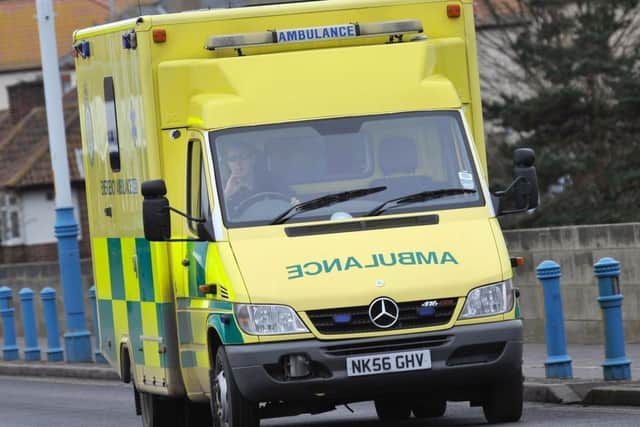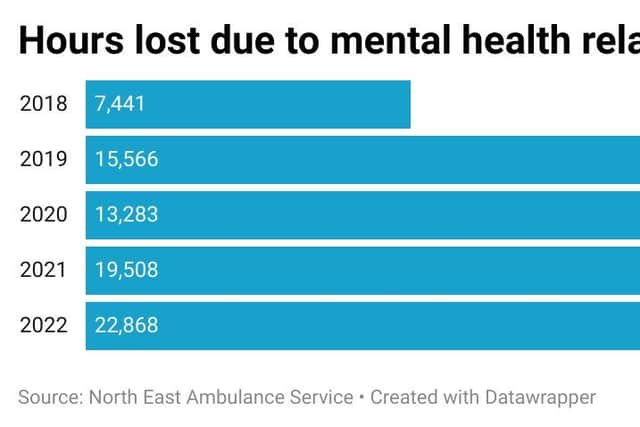Mental health: High stress, anxiety, and depression among North East Ambulance Service staff revealed as strike looms
and live on Freeview channel 276
Data obtained under freedom of information laws shows that at the North East Ambulance Service NHS Foundation Trust (NEAS), 22,868 working hours were lost in 2022 due to 200 staff absences for anxiety, stress, depression, or other psychiatric illnesses.
In 2018, only 7,441 hours were lost through a total of 64 absences, meaning the number of hours lost has more than tripled in five years.
Advertisement
Hide AdAdvertisement
Hide AdNEAS estimates that its staff headcount has increased by around 10% in this time.


Karen O’Brien, director of people and development at North East Ambulance Service, said: “The service has faced unprecedented challenges over the last three years, the likes of which we had never experienced before.
“Not only the pandemic, but the challenges across the health and care system with increased demand and pressures and long handover delays has had a direct impact on the health and wellbeing of our staff, who do the very best for our patients each and every day.
“We have a number of initiatives in place to support staff recovery. This includes our trauma risk management programme (TrIM) which provides support after a traumatic event, recruiting additional health advisors to our operations centre, and helping staff manage other challenges they face in their personal and home lives.
Advertisement
Hide AdAdvertisement
Hide Ad“We are also hoping that the current industrial action with the government is resolved soon and our investment in the service is funded long-term to ensure we can continue to support our staff."


Ambulance staff strikes this week
Some of the service’s staff will strike on Friday, February 10 as part of an ongoing dispute over pay and staffing.
Trade union UNISON’s northern ambulance lead Miles Elliott said: “These figures are a stark reminder of the colossal pressures ambulance workers in the North East are under.
“UNISON members and their colleagues at North East Ambulance Service are extremely dedicated and hardworking individuals who go above and beyond the call of duty on a daily basis.
Advertisement
Hide AdAdvertisement
Hide Ad“Many have been pushed to breaking point because of the national staffing crisis engulfing the NHS.
“UNISON has been highlighting the underlying issues behind these figures to the government for many months now without response.
“As the government continues to deny the seriousness of the situation, their views are becoming increasingly out of step with the British public who understand investment in the NHS is required urgently.”
The impact of Covid-19 on staff absences
The total hours lost from all forms of sickness more than doubled from 42,457 hours in 2018 to 105,509 hours in 2022, with mental health a major contributor to this increase.
Advertisement
Hide AdAdvertisement
Hide AdRespiratory illness related absences spiked as a result of the Covid-19 pandemic, jumping from 3,425 hours lost in 2019 to 18,203 hours lost in 2020, when they became the biggest contributor to staff absences.
Mental health overtook respiratory illness as the leading cause of hours lost to staff sickness absence in 2021. 19,508 hours were lost to mental ill health compared with 17,221 hours lost to respiratory illness that year.
Despite the further increase in mental health related absences in 2022, an increase of respiratory illness absences amounting to 28,458 hours lost meant this was again the biggest cause of sickness absences.